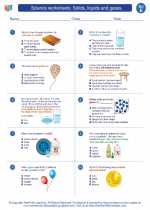Vitamin A: An Overview
Vitamin A is a fat-soluble vitamin that plays a crucial role in various bodily functions, including vision, immune system function, and cell growth. It exists in two forms: retinoids (preformed vitamin A) and carotenoids (provitamin A). Retinoids are found in animal products, while carotenoids are found in plant-based foods.
Sources of Vitamin A
Some common food sources of vitamin A include:
Functions of Vitamin A
Vitamin A has several important functions in the body, including:
- Supporting vision and eye health
- Promoting immune system function
- Supporting cell growth and differentiation
- Playing a role in reproductive health
Deficiency and Toxicity
A deficiency of vitamin A can lead to a range of health problems, including night blindness, increased susceptibility to infections, and poor growth. On the other hand, excessive intake of vitamin A can lead to toxicity, which can have adverse effects on the liver and bone health.
Study Guide for Vitamin A
Here are some key points to remember about vitamin A:
- Vitamin A is essential for vision, immune function, and cell growth.
- It is found in animal products as retinoids and in plant-based foods as carotenoids.
- Deficiency can lead to night blindness and increased susceptibility to infections.
- Excessive intake can lead to toxicity and adverse health effects.
- Include a variety of vitamin A-rich foods in your diet to ensure adequate intake.
Remember to consult with a healthcare professional or a registered dietitian for personalized advice on vitamin A intake and supplementation.
.◂Science Worksheets and Study Guides Fifth Grade. Science worksheets: Solids, liquids and gases.

 Worksheet/Answer key
Worksheet/Answer key
 Worksheet/Answer key
Worksheet/Answer key
 Worksheet/Answer key
Worksheet/Answer key
 Vocabulary/Answer key
Vocabulary/Answer key
